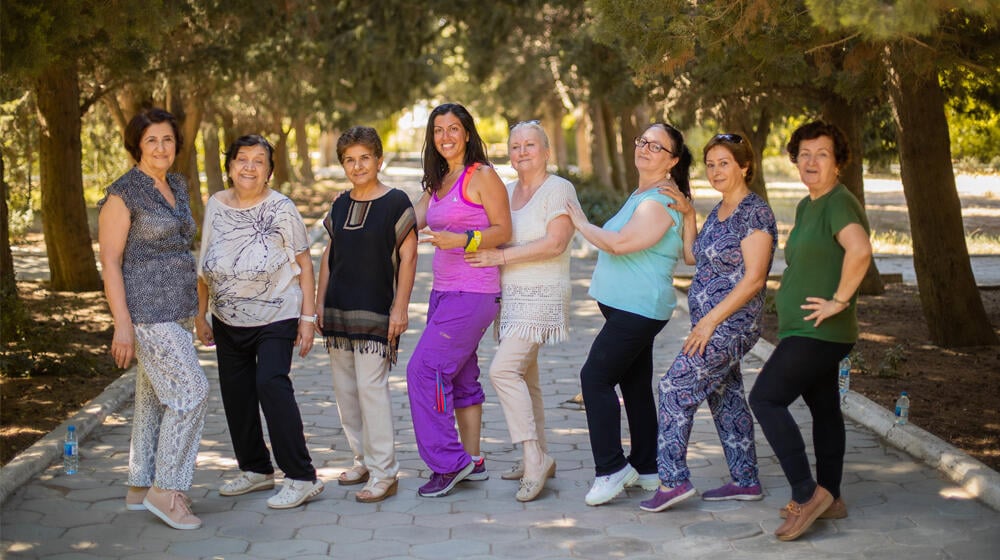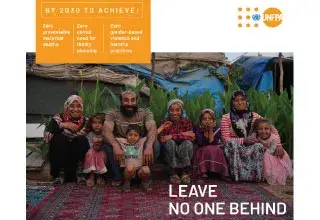Menopause is an important milestone in every woman's life, affecting their physical, emotional and mental health significantly. By 2025, 1.1 billion women worldwide will be in menopause which affects more than 1 in 5 members of the global workforce. That said, the global work environment does not address the issue adequately mainly because women lack social, economic, and political power to take part in decision making mechanisms. UNFPA Türkiye promotes women’s participation in leadership and women-friendly workplace policies, and advocates to raise awareness about menopause for a more inclusive and empathetic work environment for women.
ANKARA, TÜRKİYE - Every woman who menstruates will inevitably experience menopause, marking the end of their reproductive years, typically occurring between the ages of 45 and 55. By 2025, 1.1 billion women worldwide will be in menopause which affects more than 1 in 5 members of the global workforce. However, it remains a taboo topic in many parts of the world, including workplaces. A staggeringly low; only 14% of workplaces have specific policies addressing the issue. On October 18, World Menopause Day and everyday, UNFPA is committed to flipping the script.
Globally, almost half the women’s population participate in the workforce. Meanwhile, women perform 75 percent of the world's unpaid care work, and about 740 million women are employed in the shadow economy where they often lack access to social protections such as health care, sick leave and pensions. Whether paid or unpaid, formal or informal, women’s labour is a driving force behind the global economy, and their well-being is crucial to the social and financial health of society. It means that menopause is not solely a women's issue; it’s a human rights issue that affects millions within the global workforce.
While menopausal symptoms can be managed, they are little known, often misunderstood, dismissed, or stigmatized, leaving many women to endure this phase in silence. However, menopause can significantly impact well-being and productivity with severe physical, emotional and mental symptoms, making it more difficult for women to work and participate fully in other aspects of life.
Ignoring the challenges women may face not only compromises their health but can also reduce productivity. This makes it essential for workplaces to prioritize support for women during this health transition.
Menopause-friendly workplace policies, such as flexible working hours and health resources, are critical to address the unique challenges women may face. Such policies and support benefit not only women workers but also their families, colleagues, and communities, contributing to better workplace morale and societal health. Moreover, further research is needed to better understand the impact of menopause on women's careers and to develop more effective workplace interventions.
We must commit to increasing awareness and raising our voices on the topic to break the silence and end the shame, and create more inclusive and empathetic work environments. Leaders, particularly in male-dominated sectors, must learn and prepare to support female employees with empathy, understanding, and flexibility. Supporting women through menopause is not just a matter of equity; it's a practical necessity for a functioning, productive society.
As we strive for a more inclusive and equitable workplace, it is imperative to recognize the importance of supporting women through menopause. By addressing this global workforce issue, we can create healthier, more productive, and supportive environments for all. UNFPA is determined to raise awareness about gender related inequalities until everyone has equal rights and opportunities to have a prosperous life.



